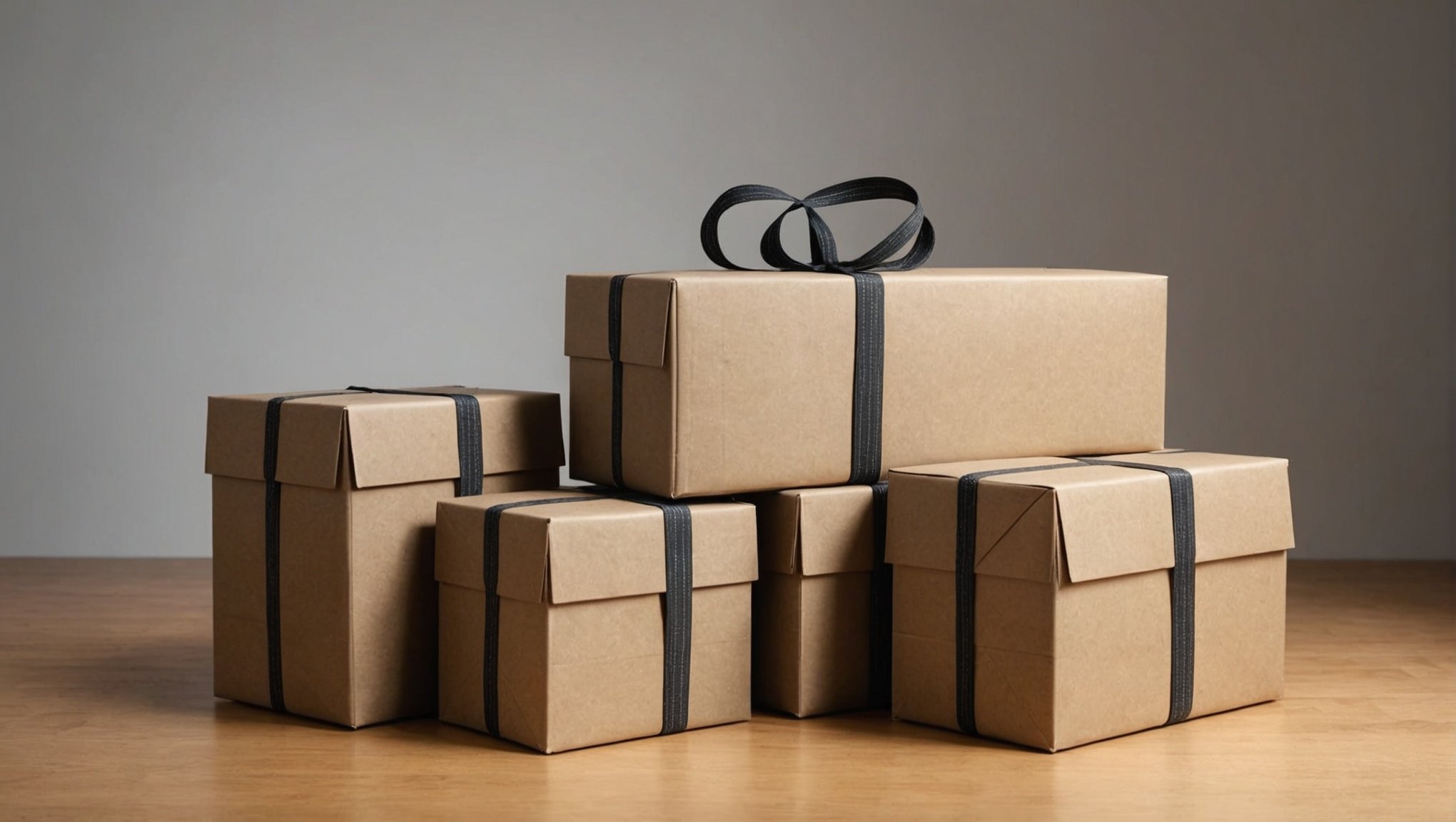Choosing the right strapping material for your packaging needs

Selecting the right strapping material can make or break your packaging efficiency. The choice hinges on factors like package weight, durability, and cost-effectiveness. Whether you deal with light parcels or heavy industrial goods, understanding the nuances of polypropylene, polyester, and steel strapping ensures your packages stay secure. Dive into our guide to learn which material fits your needs and how to optimize your packaging strategy for reliability and efficiency.
Factors to consider when choosing strapping materials
When it comes to choosing packaging strapping, several factors must be considered to ensure the best fit for your needs.
Sujet a lire : What Are the Best Practices for Navigating Export Compliance for UK Defense Contractors?
Package weight and load characteristics
The weight and characteristics of your load are crucial when selecting packaging strapping solutions. For lighter loads, Polypropylene (PP) strapping is ideal due to its lightweight and elastic properties. For heavier loads, Extruded Polyester (PET) strapping offers the necessary strength and flexibility. Steel strapping is the best choice for extremely heavy or rigid loads.
Durability and environmental conditions
Durability and environmental factors also play a significant role in strapping material selection. Corded Polyester strapping is highly resistant and suitable for delicate items, while PP strapping resists deformation and corrosion, making it excellent for long-term storage. Steel strapping is non-flexible and best for solid items with rough edges.
A lire également : How Can UK Traditional Toy Shops Innovate to Stay Relevant in the Digital Age?
Cost-effectiveness and material properties
Cost-effectiveness is another important consideration. PP strapping is generally more affordable and versatile, suitable for a range of applications. PET strapping provides a balance between cost and durability, while steel strapping is typically more expensive but offers unmatched strength for specific heavy-duty applications.
By evaluating these factors , you can make an informed decision and succeed to purchase high-quality strapping material.
Types of strapping materials
Understanding the types of strapping materials available is crucial for selecting the right option for your packaging needs.
Polypropylene (PP) strapping
Polypropylene (PP) strapping is widely used for its versatility and affordability. This material is ideal for lighter loads due to its elastic properties that resist deformation and corrosion. PP strapping is perfect for long-term storage and shipping, as it can withstand bumps and scrapes. It's also easy to apply manually with tools or automatically using strapping machines.
Polyester (PET) strapping
Polyester (PET) strapping is known for its strength and slight flexibility, making it suitable for heavier loads and pallets. PET strapping can be tightly secured, ensuring that your items remain intact during transit. This material is an excellent choice for industrial applications where durability and reliability are paramount.
Steel strapping
Steel strapping is the strongest and most durable option, perfect for securing heavy and rigid loads with sharp or rough edges, such as iron or concrete. While steel strapping offers unmatched strength, it is recommended to use industrial gloves for protection when handling. This type of strapping is best for solid, bulky items that require a non-flexible, robust solution.
By comparing these industrial strapping materials, you can determine the best fit for your specific packaging requirements.
Applications and best practices for strapping
Strapping is essential for securing packages with strapping and ensuring their integrity during transit. Selecting the appropriate method—manual or automated—greatly impacts both efficiency and security.
Manual vs. automated strapping methods
Manual strapping involves using hand tools to tension and seal the strap. This method is ideal for smaller operations or irregular loads. However, it can be time-consuming and labor-intensive. In contrast, automated strapping machines streamline the process, enhancing packaging efficiency with strapping. These machines apply consistent tension and seals, reducing the risk of human error and speeding up the packaging process.
Ensuring packaging load integrity with appropriate strapping
To maintain packaging load integrity, it's crucial to match the strapping material to the load's characteristics. For fragile or delicate items, Corded Polyester strapping is recommended due to its high resistance and non-corrosive properties. For heavier, rigid loads, Steel strapping provides the necessary strength and durability. Using the right material ensures that the load remains secure throughout its journey.
Best practices for efficient and secure packaging
Adopting best practices for strapping can significantly enhance packaging efficiency with strapping. Here are some tips:
- Select the right strapping material: Ensure you choose a material that matches your load's weight and characteristics.
- Use proper tensioning: Too little tension can lead to loose straps, while too much can damage the load. Automated machines help maintain consistent tension.
- Regularly inspect equipment: Whether using manual tools or automated machines, regular maintenance ensures they function correctly, reducing downtime.
- Train staff: Proper training on strapping techniques and equipment use can prevent errors and improve overall packaging efficiency.
By following these practices, you can secure your packages effectively, ensuring they reach their destination intact.
